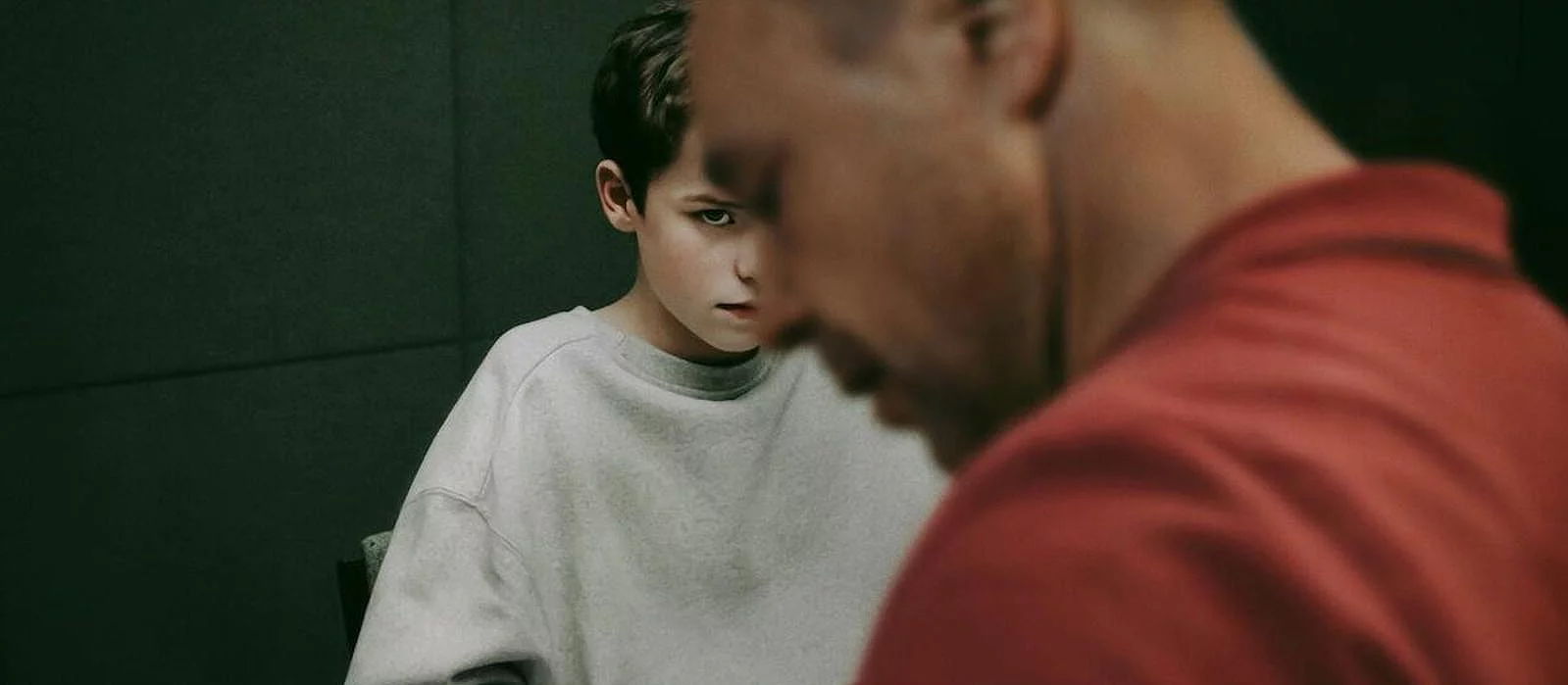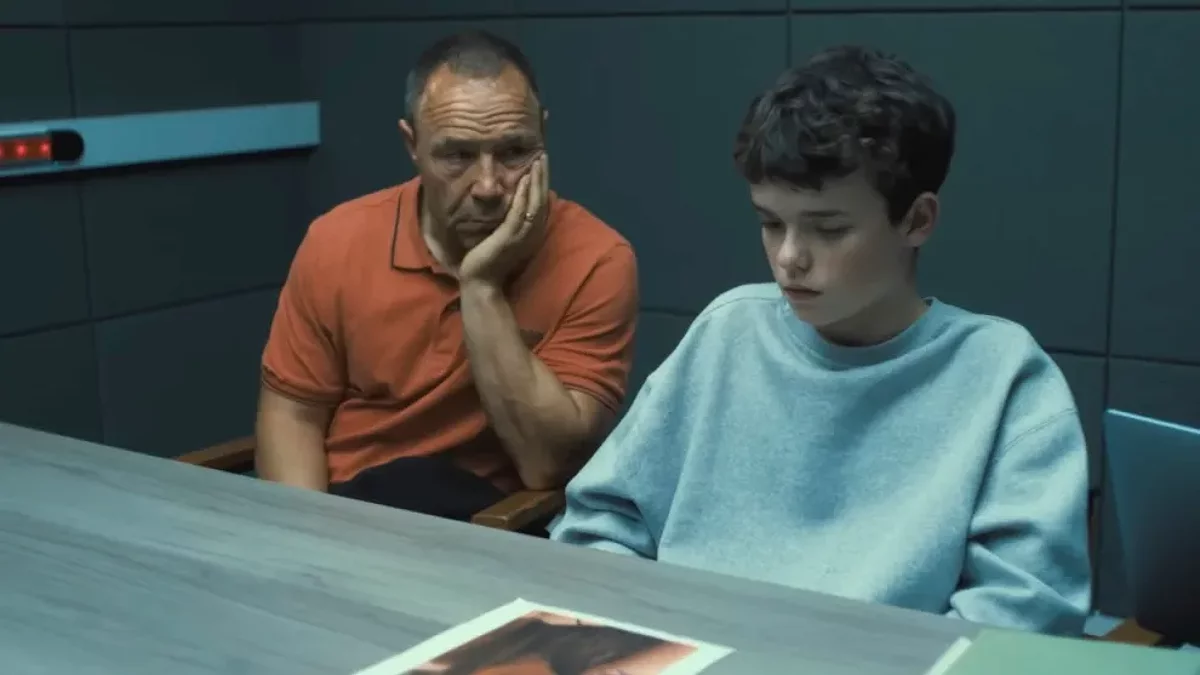Adolescence Review — the computer is not to blame

Adolescence is a new release from Netflix, which was immediately hailed as a brilliant debut and almost a new word in cinema. The four-part show tells the story of teenage violence, but does so as realistically as possible for a streaming service. As usual, we did not rely on others' opinions and watched the project ourselves. And we have a lot to discuss.
Early morning. A task force led by two detectives breaks down the door of a private house in a prosperous area of an English town. The bewildered residents are in complete shock, but the police waste no time and immediately head to the second floor to the room of the younger son — Jamie. The thirteen-year-old teenager is detained on suspicion of murder.
This is how the story begins. The viewers, like Jamie's family members, are confused. The boy doesn't look like a criminal, calls for his father, and cries. There is clearly some mistake. Only at the police station, after numerous procedural questions, the summoning of a lawyer, and the transfer of Jamie's father to the status of his official representative, does the interrogation process begin.
The standard process, in which two detectives try to extract a confession from the child, ends almost immediately. The police show Jamie and his father a surveillance video. It clearly shows the boy stabbing a girl — his classmate.
From this moment, all intrigue disappears, and it becomes clear that this is not a detective story. There's no need to figure out whether Jamie actually did what he did. What's much more important is why. However, the script doesn't delve into deep drama either. It's a fairly realistic story with equally realistic reactions from those around.
Conceptually, the first episode is an introduction to the main characters, the second involves the detectives visiting Jamie's school and searching for the murder weapon, the third is about the psychological evaluation of the boy, and finally, the fourth is entirely dedicated to the criminal's family. All of this shows a relatively simple situation from different perspectives, making the viewer change their attitude towards the events several times. However, there are some issues.
The script suffers from an excess of unnecessary details added only to stretch the runtime. For example, at school, we are introduced to the victim's friend. The girl behaves quite strangely. It creates the impression that she will play a role in the future, but no, after a single episode, she disappears. The same goes for Jamie's friend. Another highly suspicious student who ultimately adds nothing to the story. For a long time, viewers are deliberately led to expect that the incident is more complicated than shown, but in the end, none of the "Chekhov's guns" fires.
In the finale, a number of rather controversial ideas slip through, such as Jamie spending too much time on computer games. Thankfully, they didn't develop this theme too seriously.
The role of the detectives is more functional, although a lot of attention is given to various details of their characters, perhaps too much. Essentially, only the boy and his father are properly developed. The other characters come and go. Because of this, some events remain ambiguous. For example, a session with an independent psychological expert ends with the latter in tears. Is she feeling sorry for the child, or is she horrified? We never find out. Such a concept has its place; it's sometimes useful to reflect on what you've seen and form your own opinion. However, this ambiguity doesn't concern truly important moments. There, everything remains indecently simple. There's another issue — the events seem superficial, lacking deep immersion into the topic, even though the potential is there.
However, the outlined shortcomings pale in comparison to the acting. A fantastic job was done. Again, Jamie and his father, played by the well-known actor Stephen Graham Kelly, deserve special mention. Moreover, Graham is one of the creators and screenwriters of the project. Jamie's character is revealed gradually. The culmination of this process is the session with the psychological expert, where viewers see the boy as he truly is for the first time. Anyone familiar with the work of a mental health professional or who has undergone therapy will immediately see parallels with the child's state. How he changes, what defense mechanisms he uses — all of this is portrayed as naturally as possible. It’s a big challenge to write all this skillfully in the script, but to portray it realistically is true mastery and hard work. It's important to understand that for the young Owen Cooper, this is his first role ever. A true talent.
Do you consider the theme of the series relevant?
Stephen Graham performs just as well. He has solid experience and a wide range of roles, which doesn't prevent him from being... ordinary on screen. Jamie's father, Eddie, is an average head of the family. He has no skeletons in his closet. Eddie works day and night to support his family, loves his wife and two children. He has never hit anyone, doesn't drink, and isn't involved in crime. Such a man would be considered exemplary here.
Nevertheless, like any parent, Eddie blames himself for what happened. This entire process, from shock and disbelief to the painful realization of the truth, stretches over all four episodes. Of course, Jamie's father isn't always on screen, but every moment with him is fantastically good. In the finale, Graham effortlessly brings viewers to uncontrollable tears with just a single scene.
Another major plus and feature of the project is the filming. This is where Adolescence is unmatched. The fact is, all four episodes are shot in a single take without cuts. Everything you see happens here and now, and the camera operator follows the actors' every step without interruption. This lasts the entire episode, without exception. Rumor has it that some episodes were reshot 12 times, and the extensive lines that had to be memorized are another story altogether.
However, the most important thing is the reason for such an approach. Filming in a single take is an extremely costly endeavor, so there must be a reason for such a decision. We pondered for a long time what the creators wanted to convey and seem to have found the answer. This type of filming forces the camera operator to always be very close to the actors, to be an immediate participant in the scenes, which means the viewer becomes a participant as well. We aren't just watching the series; we are literally in it, from the chaos at 6 AM in the beginning to the painful tears of the father at the end. In this series, single-take filming enhances the experience like nothing else.
***
In the end, Adolescence is a fairly realistic, albeit not particularly deep, exploration of the lives of people who have encountered teenage violence. Each of us has experienced school, where behind grandiloquent words about friendship, support, and education lay humiliation, fights, extortion, and bullying. But where is that line, that moment after which a child takes a knife or a father's gun and goes to attack their tormentors? And why does one never resort to weapons while another commits the unthinkable, seemingly over a trivial matter? The series attempts to answer all these questions. It doesn't always succeed, but the attempt is certainly commendable. The unusual filming style and fantastic acting will not leave anyone indifferent. Even if you don't have children of your own and puberty happened about 10 years ago, we definitely recommend this new release, as such projects don't come out often.
Have you had a chance to watch Adolescence?






